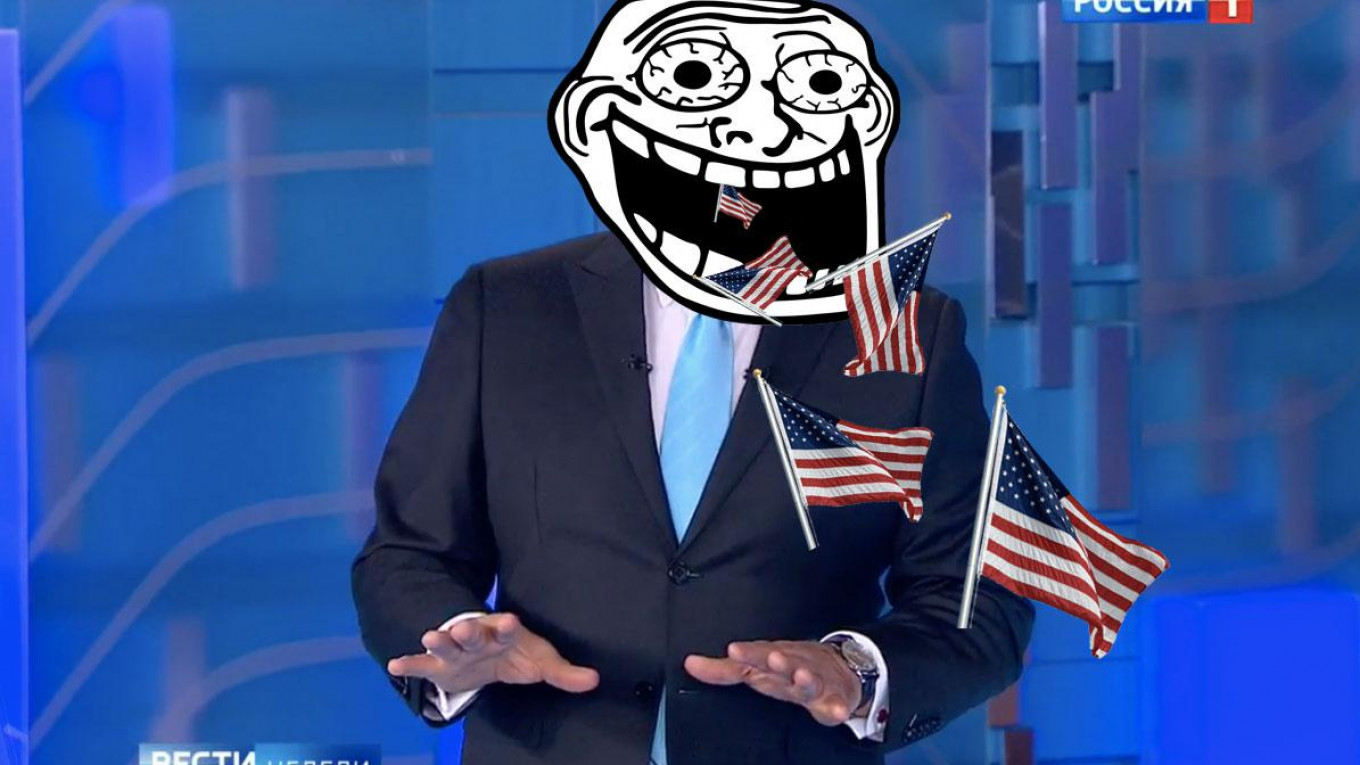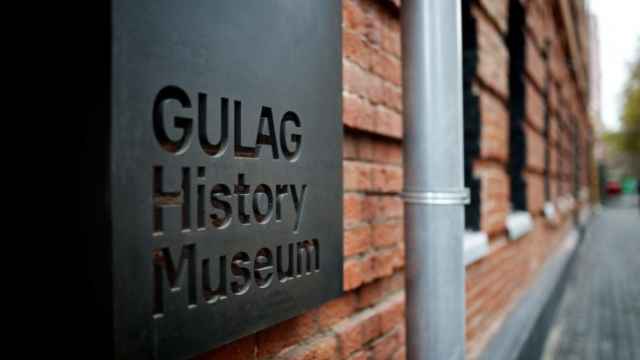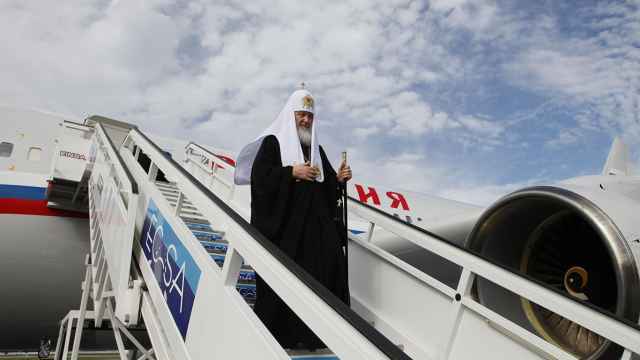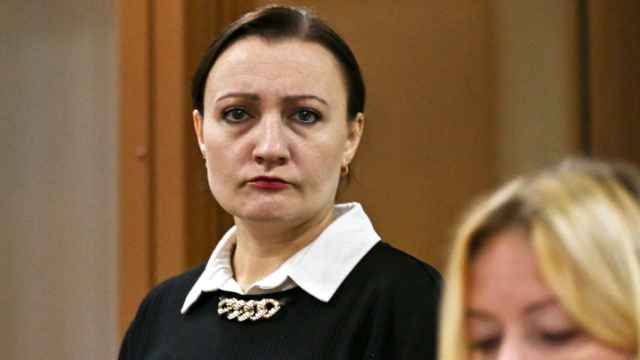Welcome to our weekly analysis of the main talking points broadcast on Russian television's Sunday news programs. The two flagship shows — Voskresnoye Vremya (The Times on Sunday) and Vesti Nedeli (Weekly News) — draw tens of millions of viewers every weekend.
Russia's Sunday news audience spent more than a third of its evening hearing about the United States, with stories focused mostly on the U.S. presidential election, framed as the story of sinister and corrupt Hillary Clinton standing in the way of the modest underdog, billionaire Donald Trump. America's military presence in the Middle East didn't go unnoticed, either; state TV channels reminded viewers at home that Washington has pursued barbaric, failed policies in war-torn areas throughout the region.
Corrupt Hillary to Win Unfair U.S. Elections
This Sunday, Russia's state television shows once again came down hard on Hillary Clinton. The country's flagship news show, Vesti Nedeli (“Weekly News”), hosted by the Kremlin's so-called “chief propagandist,” Dmitry Kiselyov, was generous enough to devote 27 minutes — out of a total 92 minutes of airtime — to exposing Clinton and America's “stinking” democracy.
“First, it has been the dirtiest election campaign in the history of the United States. Everything turned out to stink so hideously that what the United States calls ‘democracy’ now prompts nothing but disgust,” Kiselyov said. “Secondly, the new president of the United States will be a lame duck from day one. The threat of impeachment will hang over whomever takes the White House.”
In the course of the race, Trump “inflicted wounds on Hillary Clinton that no politician can survive,” the presenter said.
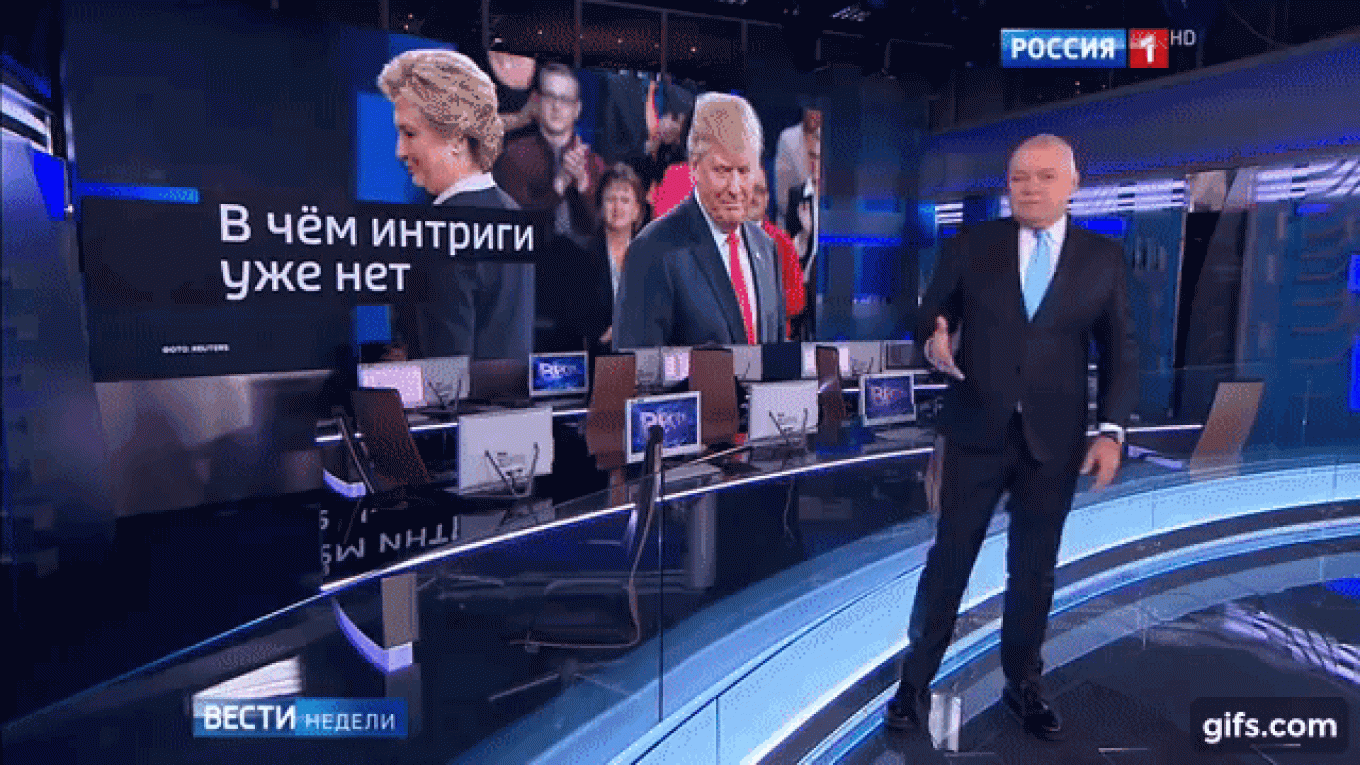
Only a few minutes of rather muted coverage were devoted to Trump himself. Kiselyov mentioned that Trump had threatened to sue Clinton after the election was over, and that one of his campaign promises was not to interfere in other countries' affairs or “dethrone regimes,” an accusation that the Kremlin has repeatedly leveled at U.S authorities. After that, Kiselyov turned to Clinton.
Not only has Clinton had a “paid meeting” with bankers, she promised to "have their backs," the presenter claimed. She also told them that “politics is like making sausages,” the anchor said with outrage. Only 38 percent of Americans trust Clinton, he said, which means "even her allies understand how two-faced she is," at least according to Kiselyov's logic.
For more about how the Russian media has covered Hillary Clinton and Donald Trump, see: Anti-Clinton, But Not Wedded to Trump
The presenter also maintained that Clinton's leaked emails make her subject to FBI investigation, meaning that treason charges are not out of the question, Kiselyov said. This supposedly makes Hillary “furious.” “It looked like the annoyance of a pickpocket who was unhappy about the fact that he had been caught,” the anchor said, adding that the Clinton Foundation received donations from Qatar, “and who knows who else.”
“Clinton is at the top of a corruption pyramid,” Kiselyov told his audience, also warning that her aide Huma Abedin has ties to the Muslim Brotherhood extremist organization. Clinton's relationship with Abedin, moreover, “might be more than a professional one,” Kiselyov's TV show said ambiguously, allowing viewers' minds to wander.
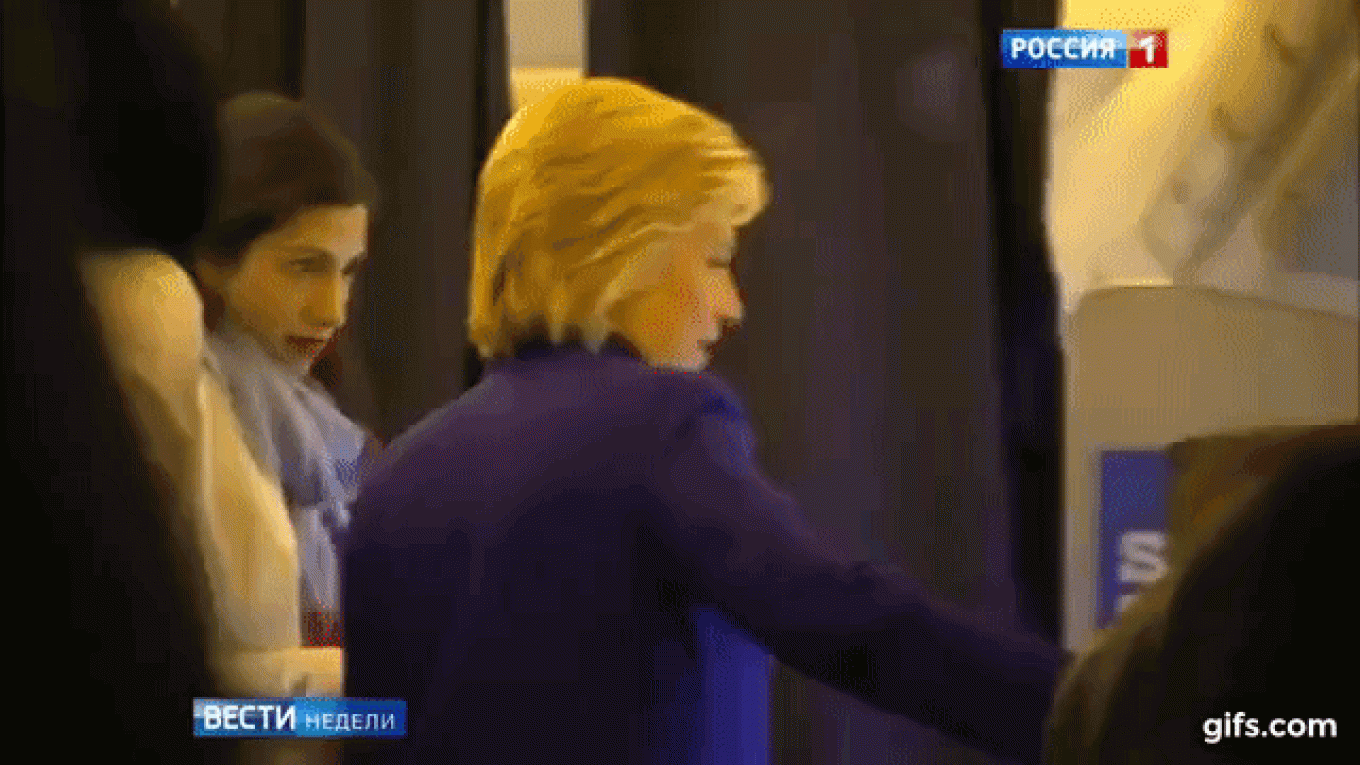
Channel One's Voskresnoye Vremya (“The Times on Sunday”) devoted only a little less time to the elections and Clinton: just 22 out of 108 minutes of its total air time. It took pretty much the same approach as Vesti Nedeli, painting Clinton as the race's main villain. The program, too, mentioned a contribution from Qatar, Huma Abedin's ties to the Muslim Brotherhood (with a quote from Trump, accusing Clinton of contributing to creating the Islamic State terrorist organization), and, obviously, Clinton's emails.
“It may become a huge problem for her, if she becomes the president tomorrow,” host Valery Fadeyev said. “An inauguration that slowly turns into an impeachment — who's to say it won't happen?” a reporter in a segment devoted to Clinton added. “Congress [could] accuse Clinton of treason, or — in another option — of accidental treason.”
Unlike Vesti Nedeli, Voskresnoye Vremya said almost nothing about about the U.S. electoral system and how it contributes to the overall unfairness of the 2016 elections. The show only quoted Trump's statements about potential rigging and concluded that elections in the U.S., together with its famous concept of democracy, are a sham.
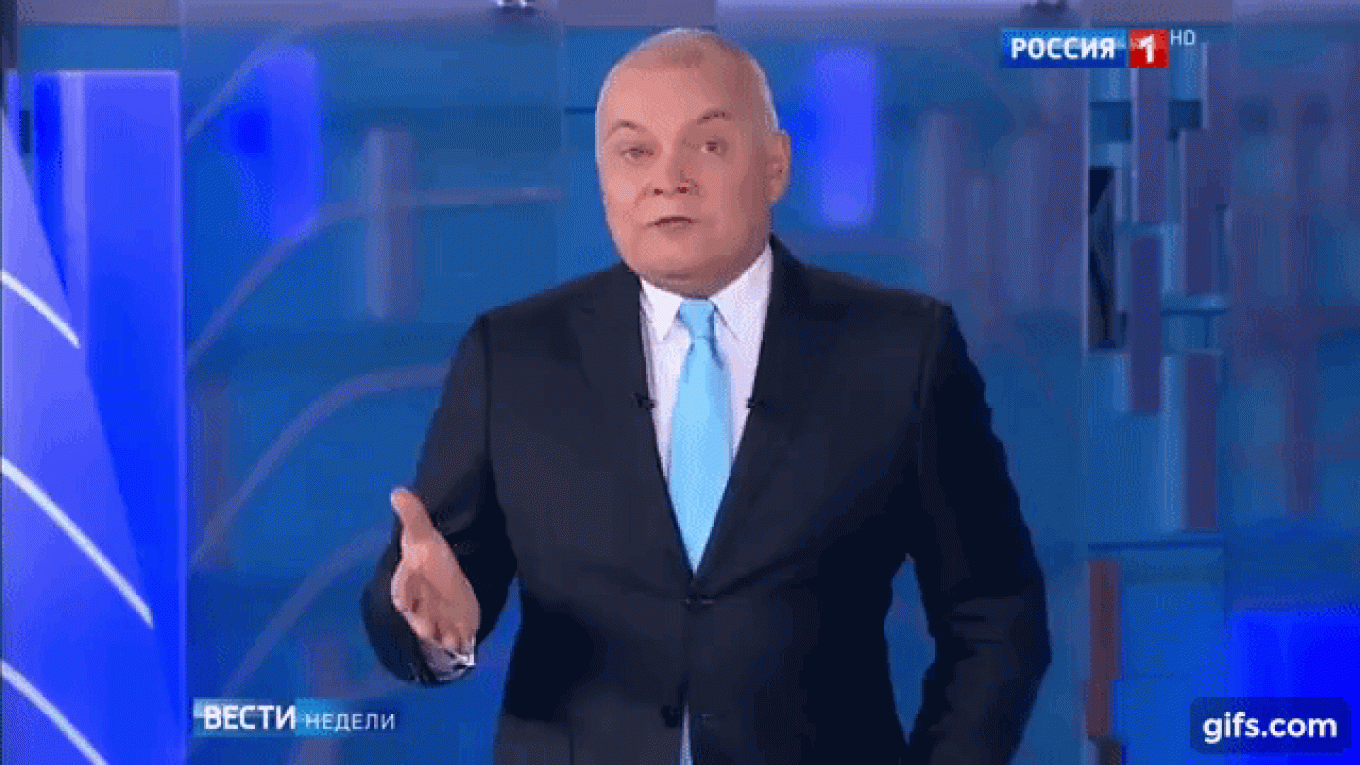
The show bashed Clinton, saying she was put forward as a candidate by “the American establishment,” referring to the “billionaires and multi-billionaires who continue to pump money” into the foundations and organizations connected to the Clinton family.
Both Vesti Nedeli and Voskresnoye Vremya cited Julian Assange, the notorious founder of Wikileaks who is rumored to have ties to the Kremlin, as a trustworthy expert on Clinton's email leaks.
Think this week's news was incredible? Check out what Russian television said last week: U.S. Elections According to Russian State TV
U.S. Hackers: Cyber-Terrorism or Hysteria?
Unsurprisingly, both shows devoted several minutes to the recent NBC report claiming the U.S. government hackers are prepared to attack the targets in Russia. Both shows quoted Russian Foreign Ministry spokesperson Maria Zakharova, who responded to the report by accusing Washington of “cyberterrorism.”
Kiselyov agreed with her definition, but argued that Moscow couldn't care less. “Naturally, the Kremlin decided not to get involved in this nonsense,” he said. Fadeyev from Voskresnoye Vremya used a different term: “cyber-hysteria.”
“[In the course of the U.S. election campaign] everyone has actively speculated about Russian hackers that were hacking everything and staging hoaxes about Clinton. Here's a final touch to this cyber-hysteria: an anonymous law enforcement official told a TV channel that the U.S. now has a secret cyber-weapon,” Fadeyev said. “This is how a PR campaign could lead to actual aggressive moves.”
Russia as Good Cop in the Middle East
Neither show missed the opportunity to remind viewers how much better Russia is at helping out war-torn countries, and both programs featured in-depth reports about Moscow's humanitarian efforts in Aleppo.
Vesti Nedeli pointed out that cooperation with the U.S. in Syria has proved ineffective. “Until recently, [Russia's Defense Minister Sergei] Shoigu believed that constructive cooperation with the West was possible in Syria. Now, he is deeply disappointed. [...] He is becoming more confident that the West is fighting Russia in Syria, and not the terrorists,” Kiselyov said.

Voskresnoye Vremya echoed the sentiment, with Fadeyev saying, “Russia tried to create a coalition [with Washington]. We tried to talk the Americans into it, and it would have avoided so many casualties. But the Americans are not up for cooperation.”
Both channels aired lots of footage from Syrian hospitals, showing injured children, bloody wounds, and even dead bodies, emphasizing the seriousness of the situation on the ground. Voskresnoye Vremya included a long segment about the American-led operation in the Iraqi city of Mosul, pointing at barbaric – and allegedly ineffective – methods the U.S. military is reportedly using in the region.
American political interests are more important than human lives, Fadeyev concluded, more or less summarizing the evening's main message: the United States is evil, and it will remain the Kremlin's adversary for the foreseeable future.
A Message from The Moscow Times:
Dear readers,
We are facing unprecedented challenges. Russia's Prosecutor General's Office has designated The Moscow Times as an "undesirable" organization, criminalizing our work and putting our staff at risk of prosecution. This follows our earlier unjust labeling as a "foreign agent."
These actions are direct attempts to silence independent journalism in Russia. The authorities claim our work "discredits the decisions of the Russian leadership." We see things differently: we strive to provide accurate, unbiased reporting on Russia.
We, the journalists of The Moscow Times, refuse to be silenced. But to continue our work, we need your help.
Your support, no matter how small, makes a world of difference. If you can, please support us monthly starting from just $2. It's quick to set up, and every contribution makes a significant impact.
By supporting The Moscow Times, you're defending open, independent journalism in the face of repression. Thank you for standing with us.
Remind me later.


